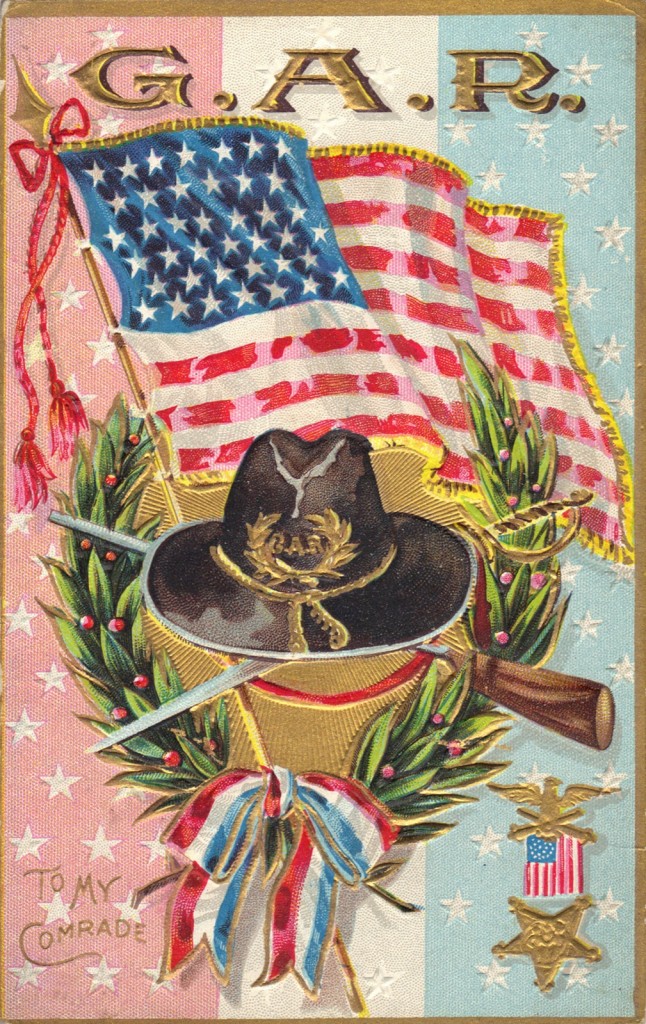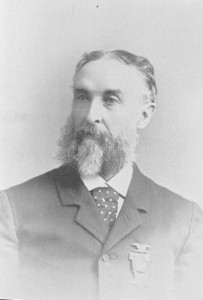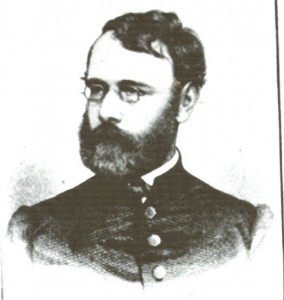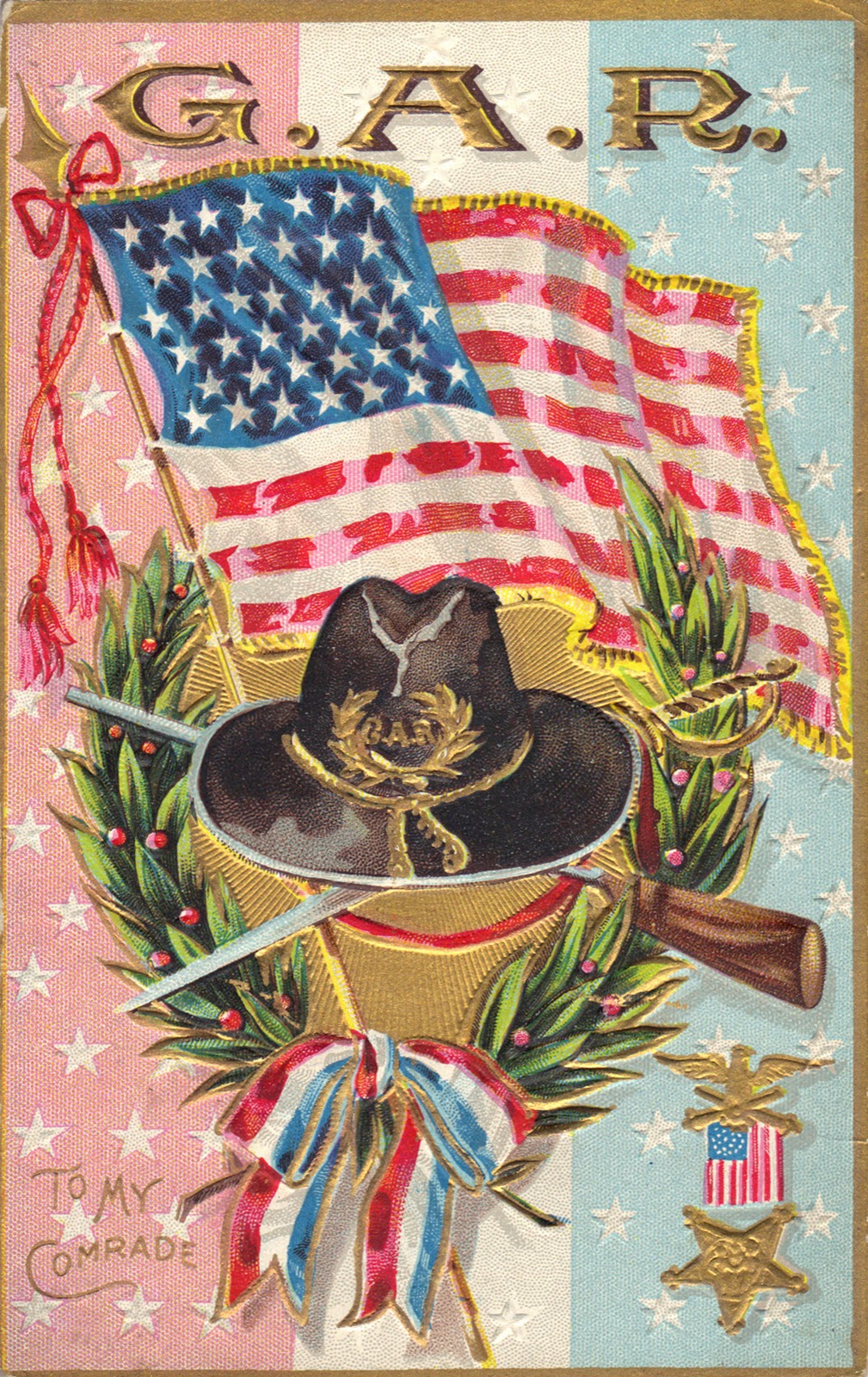
On September 25, 1866, three veterans, representing the Soldiers and Sailors Union of Massachusetts, traveled to Pittsburg, Pennsylvania and were inducted into the newly formed Grand Army of the Republic. General Charles Devens Jr., Major Austin S. Cushman, and Chaplain Alonzo Quint were given the ritual and rules governing the new organization and set off back to Massachusetts to bring together the veterans of the Civil War.
It was agreed upon that General Devens would become the provisional commander until ten posts could be formed. He would not serve long as it was decided that Major Cushman would take on the responsibility to organize what would become the Department of Massachusetts.

First Grand Commander
Upon their return to Massachusetts, Major Cushman organized Post # 1 in the City of New Bedford with a charter date of October 4, 1866. The Charter was issued by National Commander in Chief Stephen Augustus Hurlburt of Illinois. However, a new charter was issued on October 14, 1866, so it could be signed by the new Provisional Department Commander, Austin Cushman.
Over the next several months’ posts were organized all across the Commonwealth and by General Order No. 3 a call went out to hold a Department Encampment on May 7, 1867, at Mechanics Hall on Williams Street in the City of New Bedford. Mechanics Hall was being used by Post #1 as their meeting place at the time.
When the meeting was gaveled in on May 7th at 7 pm, ten of the eleven posts had sent delegates to the meeting. Post #2 from Nantucket was the only post not to be in attendance.
As the first order of business the Provisional Commander, Austin Cushman, put for the purposes and objectives of the new order.
- The preservation of those kind and fraternal feelings which have long bound together the soldiers and sailors who have stood together in many battles, sieges, engagements, and marches.
- To demonstrate the strength of these ties by works of kindness and material aid to those who need assistance.
- To provide as far as it may be possible for the support, care and education of the orphans of soldiers or sailors, and for the maintenance of the widows of soldiers and sailors.
- To render protection and assistance to disabled soldiers or sailors, whether disabled by wounds, disease, old age or misfortune.
- To establish and defend the rights of the soldiers and sailors lately in the service of the United States, with a view to secure a proper appreciation and recognition of their services and the acknowledgment of their just claims upon the community.
- To maintain unswerving allegiance to the United States of America, based upon a paramount respect for and fidelity to the National Constitution and laws, and manifesting itself by discountenancing whatever may tend to weaken loyalty, incite to insurrection, treason or rebellion, or in any manner impair the efficiency and permanency of our free institutions; also to serve as the defenders of universal liberty, equal rights and justice to all men.
After Commander Cushman’s presentation, he called upon Chaplain Alonzo Quit to deliver an address to those assembled. At the close of the

Chaplain’s speech, Commander Cushman dismissed the assembled guests so the business of the day could be accomplished.
A nominating committee was formed, and the following candidates were put forward:
Grand Commander ~ Austin S. Cushman, Post #1 New Bedford
Sr. Vice Grand Commander ~ A. A. Goodell, Post #10 Worcester
Jr. Vice Grand Commander ~ B.A. Bridges, Post #6 Holliston
Assistant Adjutant-General ~ J.T. Lurvey, Post #4 Melrose
Assistant Quartermaster-General ~ Henry A. Hallgreen, Post #7 Boston
Council of Administration:
Alonzo H. Quint, Post #1 New Bedford
S.F. Keyes, Post #7 Boston
Robert Crossman, 2nd, Post #3 Taunton
J.G.B. Adams, Post #5 Lynn
G.H. Long, Post #11 Charlestown
According to the “Early History of the Grand Army of the Republic in Massachusetts,” Commander Cushman “announced that he accepted the office of Grand Commander, to which he had been elected, and thanked the delegates for the trust and confidence thus reposed in him. He pledged himself to do all in his power to promote the growth of the Order, promote harmony and extend the usefulness of the organization.”
After extracts from the rules and regulations prescribing the duties of the several officers of the Department, it was resolved that the headquarters of the department should be in Boston.
With no further business to come before the Department the encampment was closed with the singing of Auld Lang Syne.

